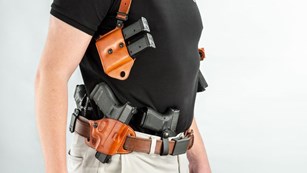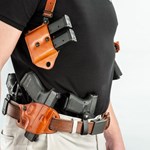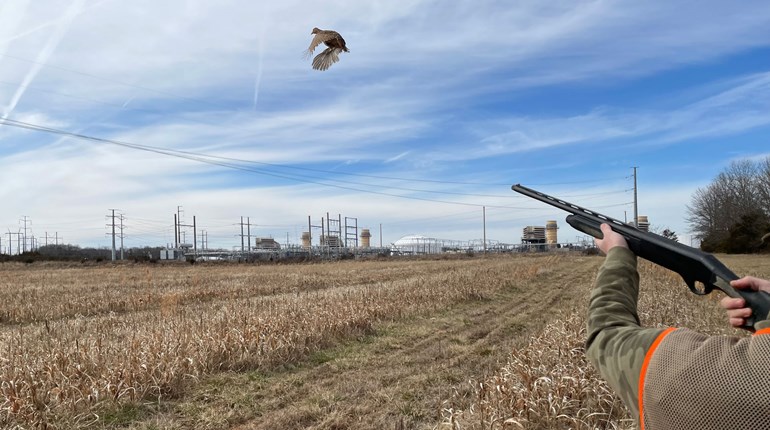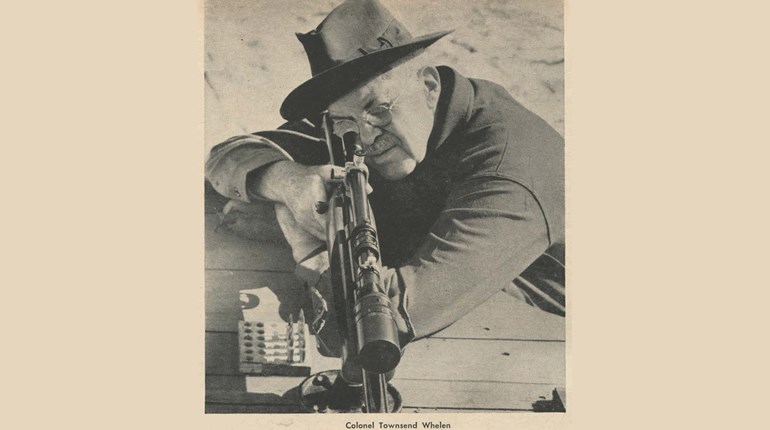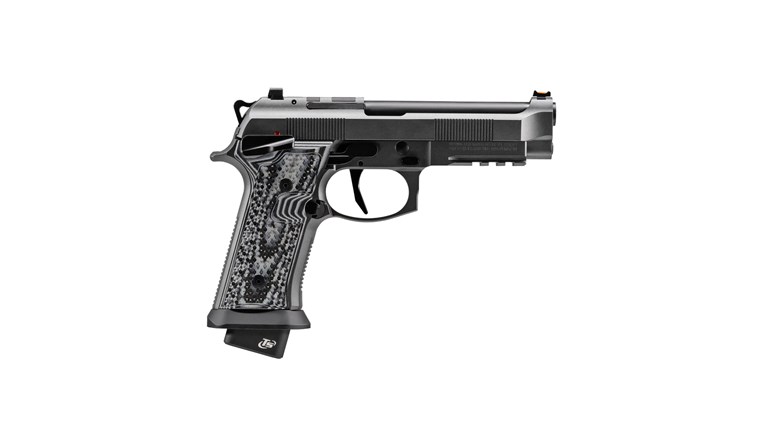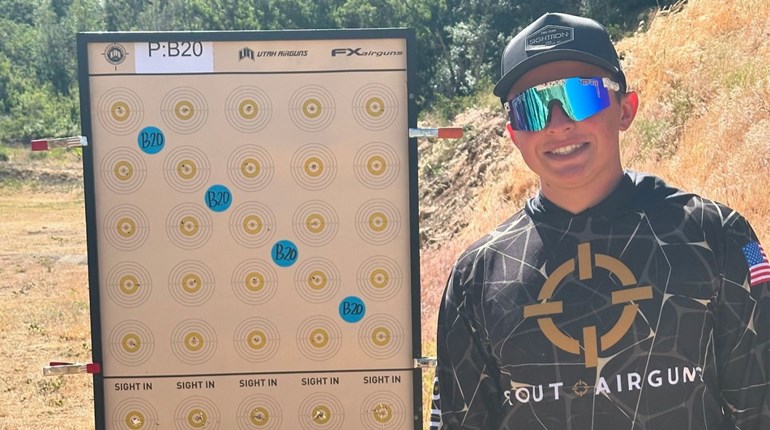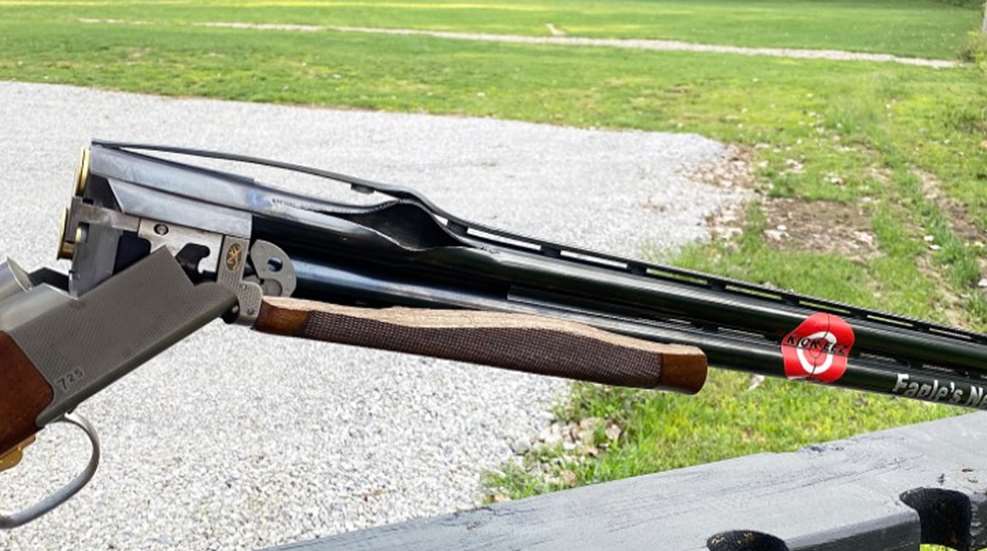
Photo courtesy Jonathan Rumbarger
Wearing eye and ear protection while on the shooting range or in the hunting field should become second nature, to the point that you feel naked without such safety equipment. Unfortunately, protective shooting gear is an expense that some new or inexperienced shooters are tempted to skimp on. After all, it’s more fun putting those extra dollars in your pocket toward upgrading a firearm or buying more ammunition, right? Wrong!
I was reminded of that important fact recently when a professional shooting coach I was talking with, Dan Bailey, pulled out his cellphone, scrolled to a recent photo, and said “Look at this.” What I saw in the picture was a 12-gauge shotgun with a large bulge about 8 inches down the barrel from the chamber, the steel split open like someone had stepped on a ripe banana.
“No one was hurt, thankfully,” he said, “but you just never know…”
The shooter in that incident was Jonathan Rumbarger, a 16-year-old sporting clays competitor from Waynesville, Ohio. He began shotgun shooting at age 13 and has been shooting competitively for the past three years with the national Scholastic Clay Target Program (SCTP).
“The accident happened just a few weeks ago at our local shooting range,” said Jonathan. “I was practicing with some team members and we were on the second station of the course. I shot the first two pairs of clays just fine, but on my second shot at the third pair is when everything bad happened. There was a louder-than-normal report from the gun and it recoiled more than usual, too. Pieces of wood from the forearm went flying everywhere...”
Rumbarger’s face was blackened with gunpowder residue from the blowback, but he was not injured in any way. Protecting his eyes was a pair Pilla Outlaw X6 shooting glasses, and protecting his ears was a set of custom ear plugs molded to fit his ears.
Jonathan and his coaches are not sure why the gun barrel exploded, and they may never know. A wad from a previous shotshell could have lodged in the barrel, causing an obstruction, but that’s just speculation. The lesson to learn here is that even when using new, factory-loaded ammunition in a well-maintained modern firearm, there is still a chance that a mishap can occur. Guns and ammo are mechanical devices that can and do fail. You must be prepared.
Shooter’s Ear
The generic term “shooter’s ear” is defined as high-frequency hearing loss caused by shooting firearms while not wearing adequate ear protection.
“And the damage can be asymmetrical,” said Dr. Anne Jenkins, an audiologist practicing in Columbus, Ohio, “meaning worse in one ear than the other. It depends upon how you hold and fire a gun, for instance a handgun versus a rifle or shotgun.”
The threshold noise level at which damage begins occurring in the human ear is 85 decibels. A 12-gauge shotgun produces around 150 decibels of sound. Length of time can play a role, too, as the damage is cumulative.
For instance, someone listening to loud sounds—music, for example—at the 85-decibel level for lengthy periods of time can suffer hearing loss. The distance you are from a loud noise is also a factor, as is shooting at an indoor range versus an outdoor range—indoor ranges are usually louder because the sound doesn’t dissipate as readily. The sobering fact is that hearing loss is nearly always permanent. Once your hearing is gone, it’s gone.
However, Jenkins said that if someone does experience a sudden, extremely loud noise, getting to a doctor as soon as possible can help mitigate the hearing loss.
“The doctor will often prescribe a steroid, as the injury is usually an inflammation,” she said. “Symptoms to be concerned about are severe ringing in the ears and normal sounds such as voices being muffled, distorted or garbled. Hopefully, with treatment, a person’s hearing will return to near-normal levels, but you often never get it all back.”
For sportsmen and women, young and old, Jenkins recommends double protection: wearing foam ear plugs covered by ear muffs when shooting or hunting.
“The problem with soft plugs alone is that some people don’t use them correctly; they don’t insert them deeply enough into the ear canal, so the plugs don’t stay in place,” she said.
Electronic ear protection is also an excellent choice, as these devices allow you to hear normal conversations while on the range and natural sounds while hunting, yet they mute the blast of a firearm. When purchasing such electronic hearing protection look for a Noise Reduction Rating (NRR) of at least 30 decibels. If you wear hearing aids, do not wear them when you shoot or hunt, even with hearing protection in place.
According to Dr. Jenkins, evidence of hearing loss can be detected in even young shooters if their ears are not properly protected. Regardless of age, your hearing can be permanently damaged with just one shot if that shot is too close to the ear.
That happened to a buddy of mine who was waterfowl hunting while not wearing hearing protection, which was his first mistake. He shoots left-handed, so therefore he was positioned on the far right side of a duck blind. (That way he could swing on a bird flying far to the right better than a right-hander.)
“Some ducks decoyed into the pond, landed on my side of the blind, and I stood up to shoot,” my friend recalled. “However, the hunter to my left rose up at the same time, stuck the muzzle of his shotgun in front of my face, and pulled the trigger. The muzzle blast was so intense that both of my ears were ringing immediately. The blast gave me an instant headache, and the shot was so close to my left ear that I thought my eardrum had burst.
“My ear hurt so bad that later that day I went to a hospital to have it checked out. The eardrum wasn’t broken, but the concussion from the shot had caused severe, permanent damage—hearing loss I still suffer from today.”
Obviously, the other hunter never should have swung and shot that far to his right, but things like that sometimes happen when an inexperienced shooter/hunter gets a little too excited. So be prepared, always wear your “Eyes and Ears” on the range and in the field.
As the shooting coach who shared the cellphone photo with me said, “You just never know…”







